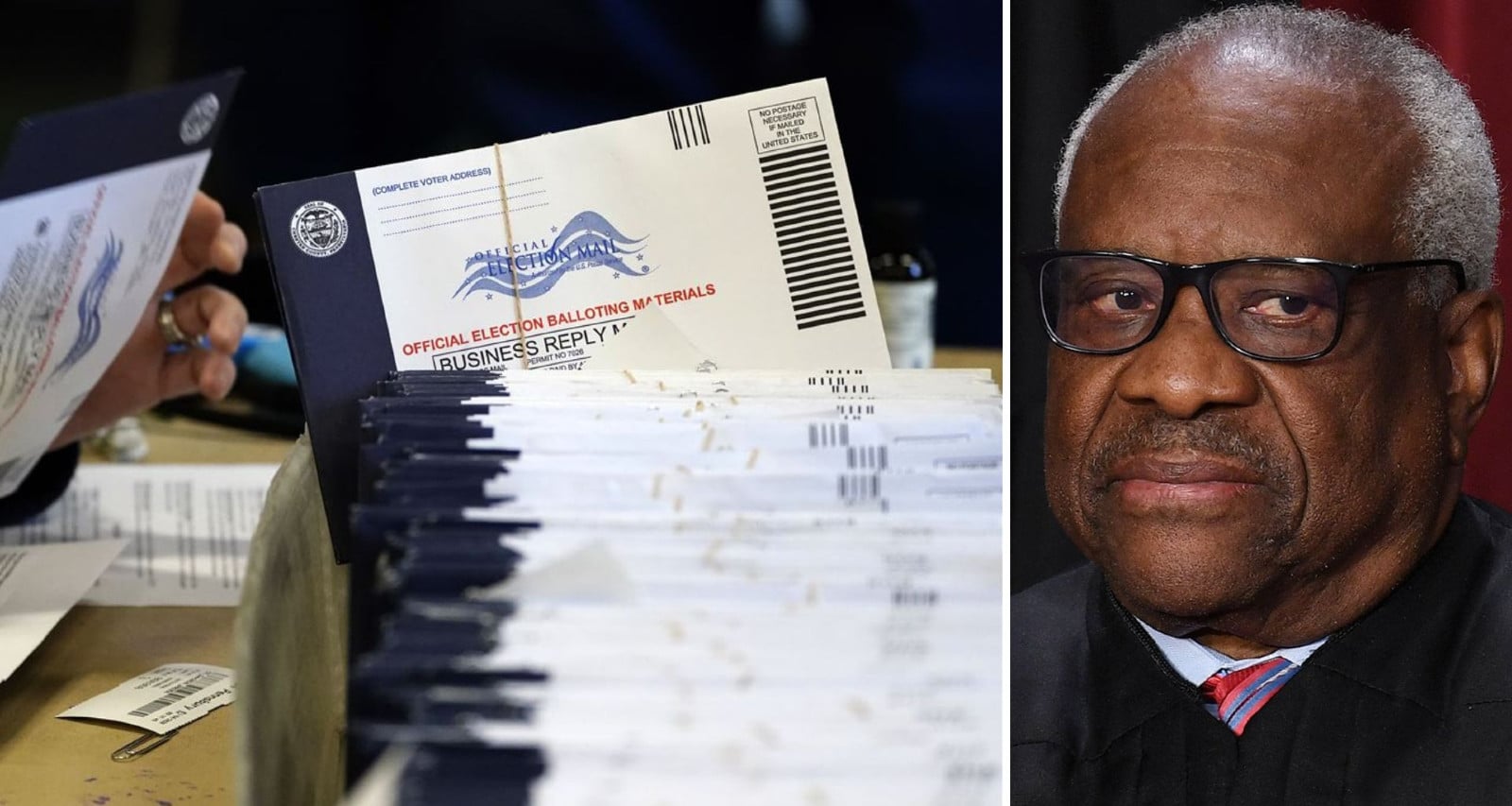
This article was originally published on Conservative Brief. You can read the original article HERE

OPINION: This article may contain commentary which reflects the author's opinion.
The U.S. Supreme Court has issued another key ruling involving the widespread use of mail-in ballots ahead of the 2024 election.
Without providing a reason, the justices turned down a case alleging a “crisis of confidence” regarding Oregon’s decades-old mail-in ballot system. The state adopted universal mail-in ballots in 2000 after residents of the state approved it in a 1998 referendum.
The plaintiffs contended that “[e]very phantom vote cast disenfranchises a legitimate vote” and sought to have the court dismantle the state’s mail-in voting system. The district court dismissed the lawsuit last summer, and the plaintiffs then appealed to the 9th U.S. Circuit Court of Appeals, which also dismissed the case last December.
“Plaintiffs do not allege that their votes were not counted, nor do they identify with sufficient particularity how any given election in Oregon was fraudulently manipulated through the vote-by-mail or computerized tabulation systems,” the three-judge panel wrote. “Indeed, plaintiffs concede that they do not know whether Oregon elections are fraudulently manipulated at all. Plaintiffs allege only that they suffer a ‘crisis of confidence’ in Oregon’s voting systems, which is the same ‘speculative’ grievance that we found insufficient to confer standing in Lake.”
Advertisement
Meanwhile, the U.S. 3rd Circuit Court of Appeals handed down a decision last month that could significantly influence election outcomes in Pennsylvania, a key swing state, as well as other battleground states, marking a notable win for Republicans who have been advocating for voter integrity measures.
The court overturned a federal district court’s order and ruled in favor of the Republican National Committee (RNC) regarding signature verification for mail-in voting in the “crucial” state.
Per NPR, the case was about whether mail-in ballots with an incorrect or no date at all under the voter’s signature should be counted.
Democrats argued that the Materiality Provision, as outlined in Section (a)(2)(B) of the Civil Rights Act of 1964, should apply, thereby asserting that the ballots should be counted.
The Materiality Provision prohibits denial of the right to vote because of an “error or omission” on paperwork “related to any application, registration, or other act requisite to voting,” if the mistake is “not material in determining whether [an] individual is qualified” to vote.
The RNC responded by contending that enforcing the date requirement on ballots “does not impinge on the right to vote” because the Materiality Provision “only prohibits immaterial requirements affecting the qualification and registration of a voter,” not other, more specific requirements for casting a ballot, The Daily Wire reported.
All three of the appeals court judges were appointed by Democrats; two of the three agreed with Republicans, writing, in part:
States have separate bodies of rules for separate stages of the voting process. One stage, voter qualification, deals with who votes. To register and thus be authorized to vote, applicants must follow prescribed steps and meet certain requirements. It’s like obtaining a license to drive. Another stage deals with how ballots are cast by those previously authorized to vote, which is governed by a different set of rules. To cast a ballot that is valid and will be counted, all qualified voters must abide by certain requirements, just like those authorized to drive must obey the State’s traffic laws like everyone else.
The Materiality Provision is an important federal overlay on state election requirements during the “who” stage: voter qualification. It prohibits States from denying an applicant the right to vote based on an error or omission in paperwork involving his application if that mistake is immaterial in determining whether he is qualified to vote. That is, it is triggered when conduct or laws restrict who may vote. But it leaves it to the States to decide how qualified voters must cast a valid ballot. Pennsylvania has made one such rule—the date requirement—mandatory. The federal Materiality Provision, in our view, does not interfere.
RNC Chairman Michael Whatley responded to the ruling: “This is a crucial victory for election integrity and voter confidence in the Keystone State and nationwide. Pennsylvanians deserve to feel confident in the security of their mail ballots, and this 3rd Circuit ruling roundly rejects unlawful left-wing attempts to count undated or incorrectly dated mail ballots. Republicans will continue to fight and win for election integrity in courts across the country ahead of the 2024 election.”
This article was originally published by Conservative Brief. We only curate news from sources that align with the core values of our intended conservative audience. If you like the news you read here we encourage you to utilize the original sources for even more great news and opinions you can trust!









Comments